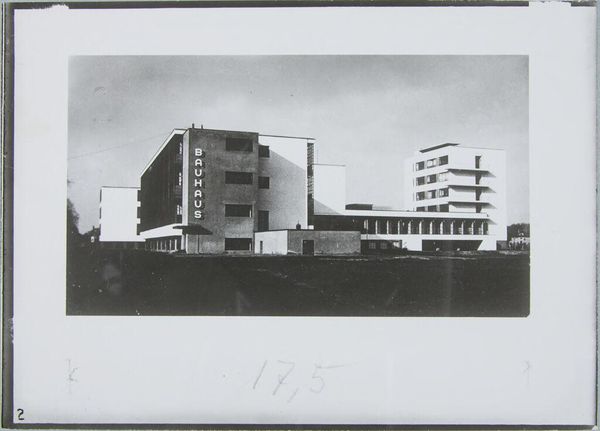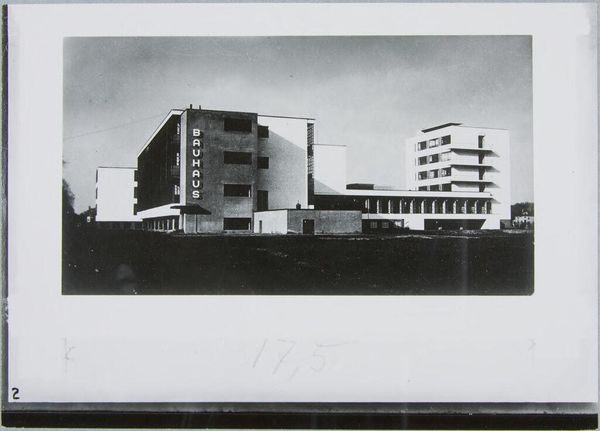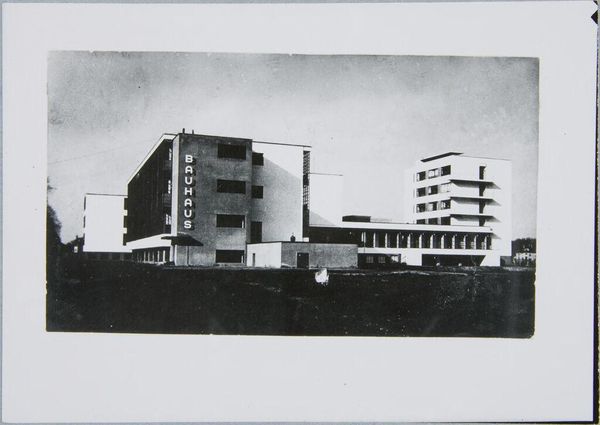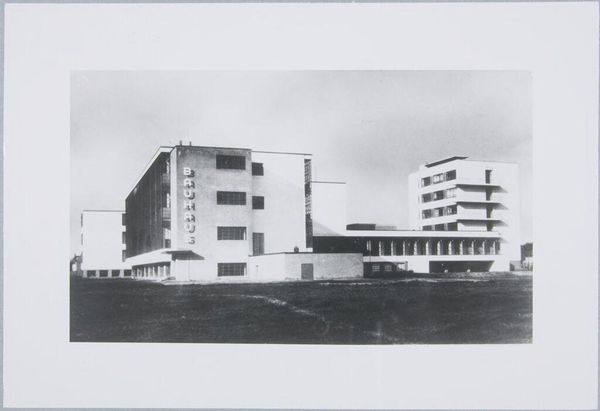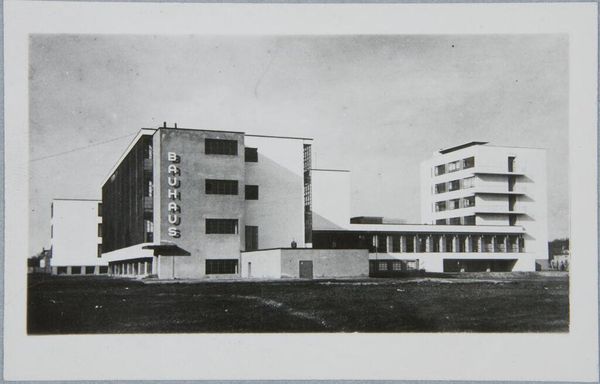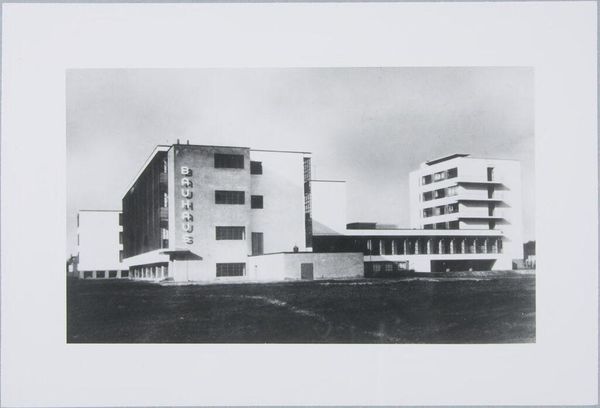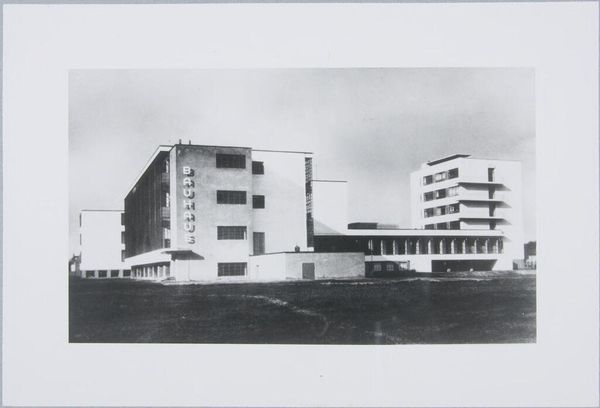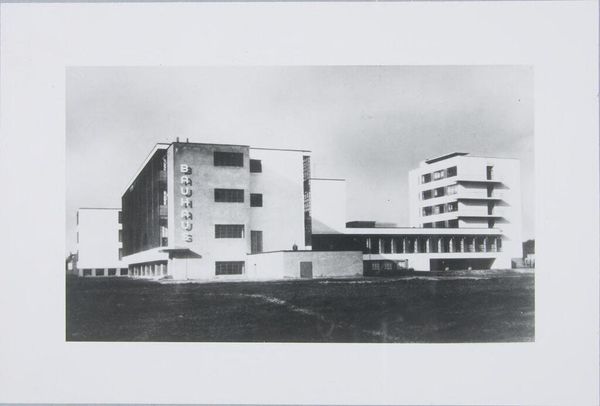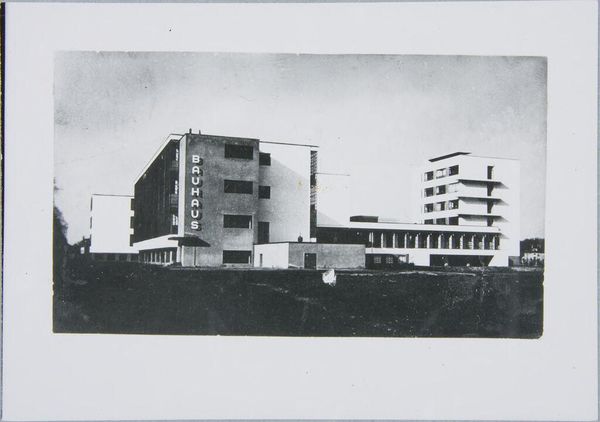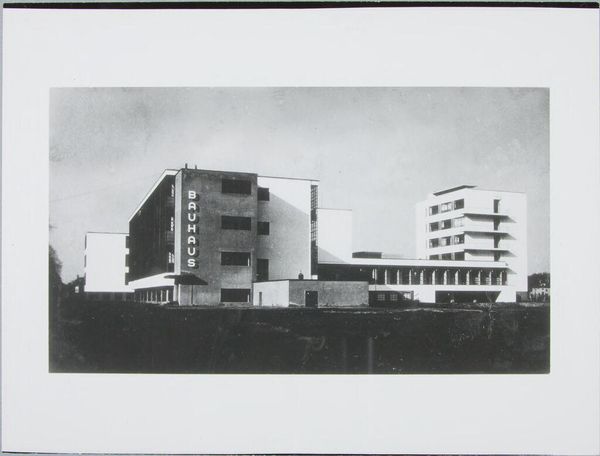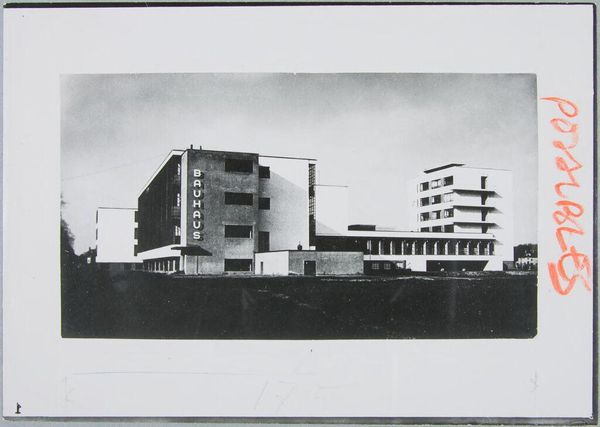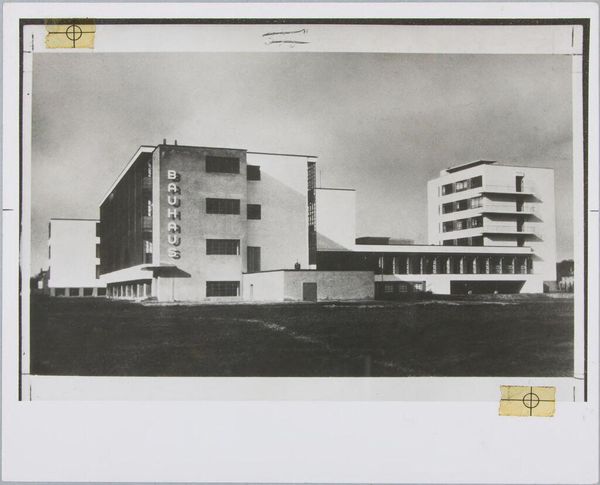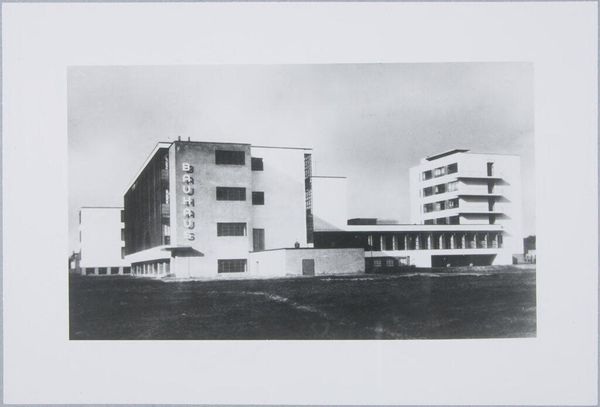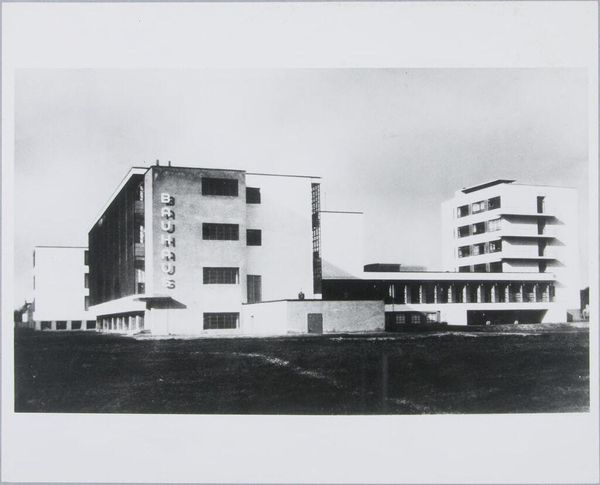
Bauhaus Building, Dessau, 1925-1926: View from southwest after 1926
0:00
0:00
Copyright: CC0 1.0
Editor: So, this is Klaus Hertig's photograph of the Bauhaus Building in Dessau, taken sometime between 1925 and 1926. I’m struck by the stark geometry. What statements were the architects making through this building’s design? Curator: The Bauhaus, as a movement, was deeply invested in challenging traditional modes of art and design education, seeking to break down the barriers between art, craft, and technology. This building itself, with its functional design and rejection of ornamentation, reflects a commitment to social progress and equity. Editor: Equity? How so? Curator: By embracing mass production and functionalism, the Bauhaus aimed to make well-designed objects accessible to everyone, regardless of their social class. It was a radical vision of a more democratic and egalitarian society. Editor: That’s fascinating. I never considered the Bauhaus's social agenda. Curator: Indeed. Art and architecture are rarely neutral; they often reflect and reinforce existing power structures, or, as in the case of the Bauhaus, attempt to disrupt them. Editor: I guess there’s more than meets the eye. Thanks for enlightening me.
Comments
No comments
Be the first to comment and join the conversation on the ultimate creative platform.
